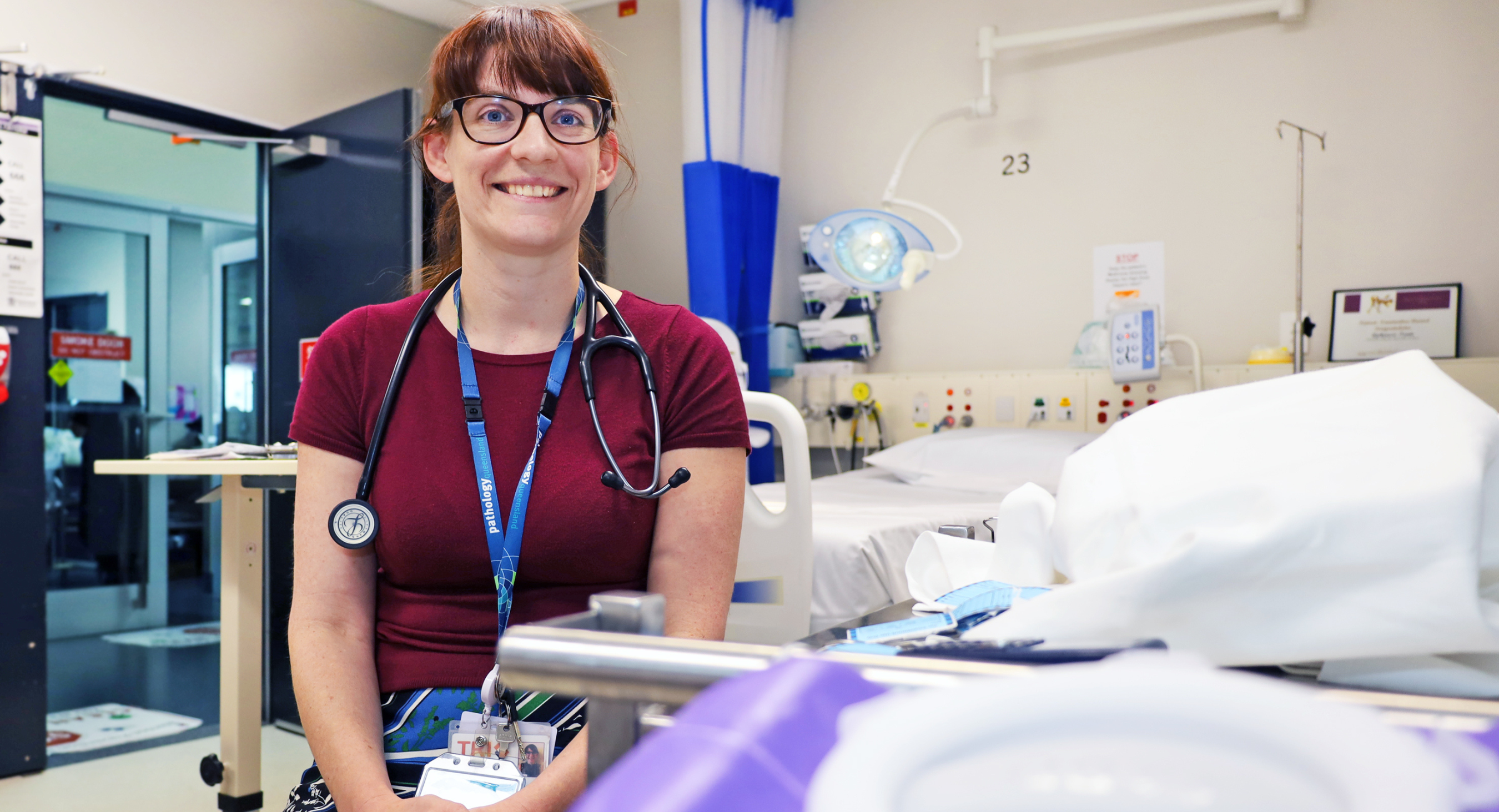
Some people in health are the embodiment of clinical excellence, research innovation in practice and have the ability to harness the complexities to forge new treatment pathways. Haematologist, Dr Fiona Swain is that person.
Dr Swain’s research into relapsed Diffuse large B-cell lymphoma (DLBCL) is looking to explain why some therapies might work better and for which patients.
“I’m researching this angle because DLBCL is the most common lymphoma and there is a massive contrast between patients who achieve long term cure, and those that relapse,” she said.
Looking at historical biopsies of patients when they were diagnosed as well as when they relapsed, the research looks for changes in the microenvironment of the tumour which could explain why some patients don’t respond to treatment.
The retrospective project involves several Queensland Health sites and 2 hospitals interstate and is one of the largest studies of paired DLBCL biopsies in the world.
“What we are seeing is that a type of immune cell called CD8 T-cells are very important in predicting whether or not you will respond to chemotherapy treatment,” she said.
Dr Swain presented her research abstract at the Annual American Haematology Conference (ASH) - the biggest Haematology conference in the world in San Diego.
“Hopefully this research will also help to predict response to newer treatment options harnessing the immune system, such as CAR-T and bispecific antibodies. CAR-T has recently moved into treatment at first relapse of DLBCL and is likely to be approved to commence in Queensland in the coming weeks.”
In addition to existing CAR-T clinical trials, Dr Swain has been instrumental in starting up CAR-T as standard of care for patients on site at PAH, (already in place in RBWH and Townsville), with PAH the next to go live in the coming months.
“PAH did the first allogeneic CAR-T cell treatment for lymphoma in Queensland in 2023 and we are currently performing clinical trials in both lymphoma and myeloma; but commercial products available to Australian patients in Queensland as a standard of care have, until recently, only been provided at the RBWH and now Townsville Hospital,” Dr Swain said.
Her role coordinating standard of care start up processes at PAH involves collaboration with colleagues in RBWH and Townsville as well as multiple teams within the PAH.
This approach for patients involves Haematology, nurses, apheresis staff, the lab staff who manage the stem cells, pharmacy, allied health, informatics, data management; and then there is the impacts on the other departments including Emergency presentations, ICU admissions, increased utilisation of radiology resources, and after-hours management of those patients.
“The service expects to see a predicted 36 patients per year which doesn’t sound like a lot but the process for each individual patient is complicated and requires a lot of coordination. Cells need to be collected from patients and sent overseas for manufacturing which takes a minimum of four weeks,” Dr Swain said.
“In particular, CAR-T is a massive workload for our apheresis department and the stem cell laboratory, because each time we set up a new product, they need to go through additional auditing procedures on top of the standard NATA accreditation, so it has been a lot of extra work for them.”
She said that while it was nice that she has been publicly acknowledged for her work in setting up the standard, she shares the credit with those responsible for every vital part of the process including the nursing coordination to manage competing priorities, bookings, teams, a 10-14 day inpatient admission and frequent clinic visits post-treatment. She pays particular credit to Nurse Practitioner for Stem Cell Transplant, Rosita van Kuilenburg.
The department has also received a PA Research Foundation grant for additional staffing to support the laboratory staff to conduct clinical trials with CAR-T.
Congratulations Dr Swain and the broader Cancer Services team for this exciting introduction for lymphoma patients at PAH in the coming months.